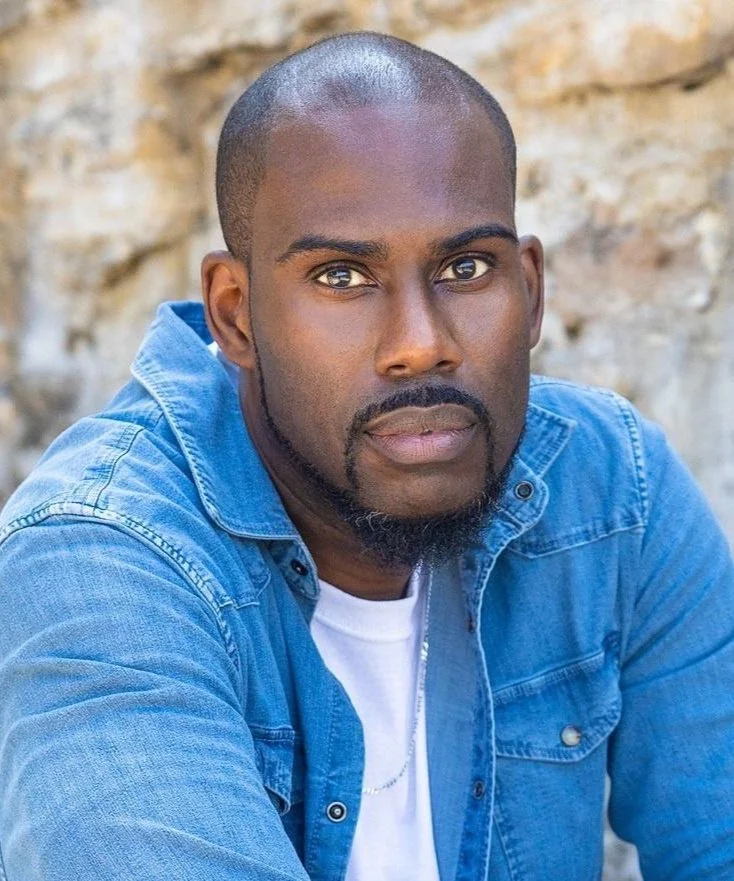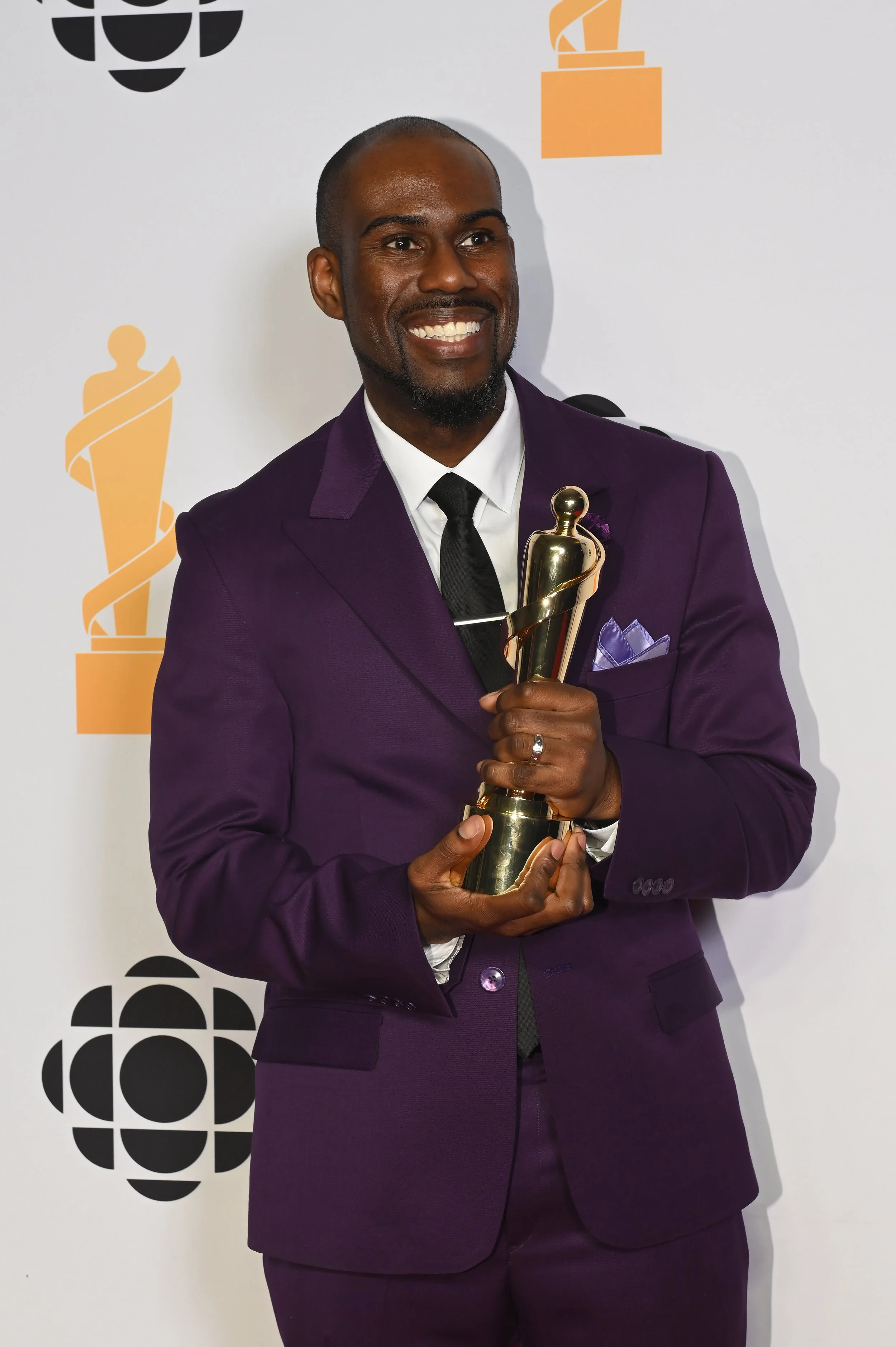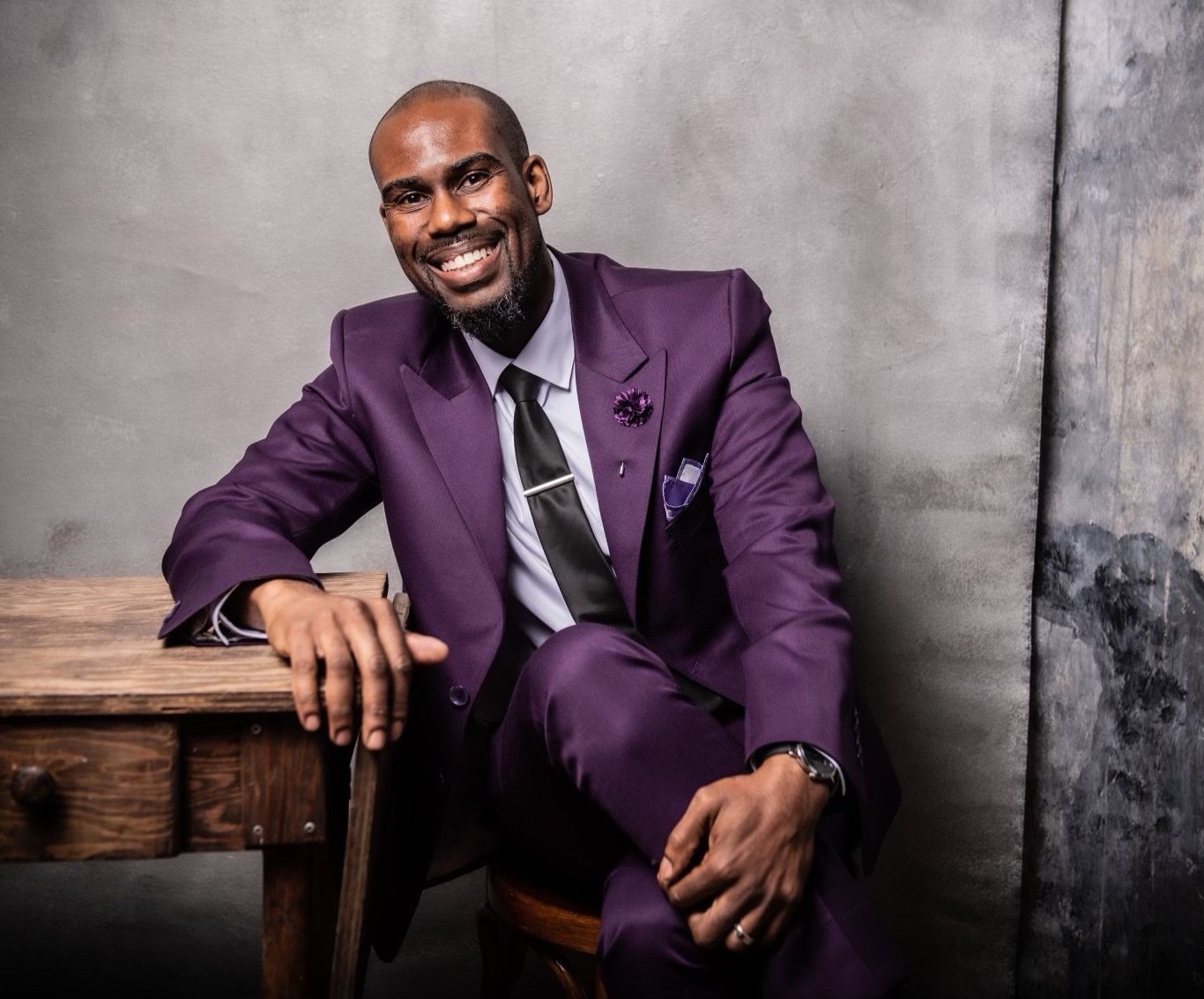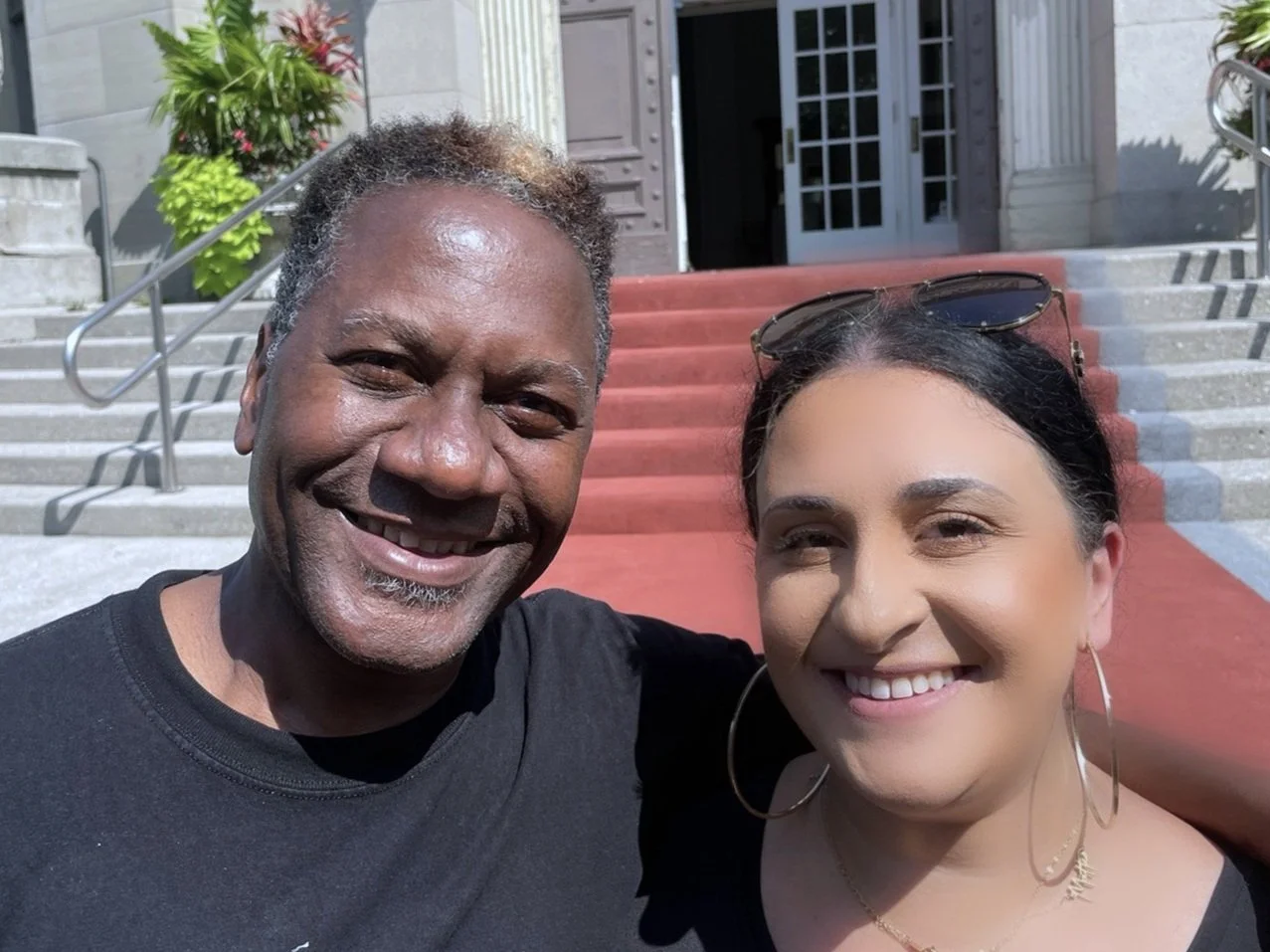MusiCounts Teacher of the Year Darren Hamilton is an advocate for culturally responsive music pedagogies
June 29, 2022
There was a time when Darren Hamilton was unsure whether to pursue music education studies.
In post-secondary institutions, he often was among a handful of Black students in the class.
In fact, Hamilton was the only Black in his cohort to graduate from Western University Master’s program in 2016.
“The thoughts of giving up were prompted by the sense of isolation and feeling like I didn’t belong,” he said. “I didn’t see a lot of people that looked like me in that space. Also, the music that was part of that curriculum wasn’t what I was most interested in and representative of my cultural background.”
Despite doubts, Hamilton persevered and it has paid dividends.
The David Suzuki Secondary School music educator is the recipient of the 2022 MusiCounts Teacher of the Year Award.
MusiCounts Teacher of the Year Award winner Darren Hamilton (Photo contributed)
The national honour recognizes an inspirational Canadian music educator’s impact on students and music education.
“I am so humbled and thankful for this honour,” said Hamilton. “This is impactful because I am the first Black music educator in the 17-year history of the award program to be recognized with it. That means so much to me because I have endured and observed the challenges that racialized students studying music face in the school system. To be able to overcome those challenges and find a way to make my mark in the field and to be honoured with this award allows me to be a beacon of light for others in the community who have a desire to do something similar.”
Brian Leichnitz, the head of the school’s Arts department, nominated him for the prestigious award.
“Darren is quiet, unassuming and humble and once you really get to know him, you will understand what makes him such a remarkable music educator,” he said. “In addition to all he does along with studying for a doctorate, he advocates for culturally responsive music pedagogies so that all students can hear themselves in their curriculum.”
The announcement was made at the 51st annual JUNO Awards in Toronto on May 15.
For Hamilton, it was the first time attending the national celebration honouring Canadian musical artists and bands.
“It was amazing to be at the event that was held in the city where I was born and raised and then to have my name announced as the winner of the Teacher of the Year Award,” he said. “It was a huge experience and something I will never forget.”
In addition to a JUNO statuette, Hamilton received a significant contribution that will go towards his school’s music program and a $10,000 cash prize.
He is considering using part of the funds to set up a scholarship for Black students pursuing music education or formal music training at the post-secondary level.
“That’s something I really want to do and I have shared it with my wife in the last few years,” said Hamilton. “There is definitely an opportunity now to get it started once I work out how it is going to be done.”
To whom much is given, much will be required is a line of wisdom that Hamilton, who was raised in a Black gospel church, takes seriously.
Last year, he used a MusiCounts Band Aid Program grant to purchase DJ consoles for his school.
“Those were instrumental in enabling us to start a new course, ‘The Sounds & Sights of Hip-Hop and R & B’,” noted Hamilton who received formal music training at the Royal Conservatory of Music and was a member of his church’s youth choir. “The course explores those two genres of music in terms of the history, culture and production. Students also have an opportunity to learn how to DJ which is a hip-hop element.
“This has been very impactful because prior to the provincial Ministry of Education doing a review of the Peel District School Board and identifying the existence of anti-Black racism in the curriculum, I was already interviewing Black students at my school because I was concerned that they were not taking the instrumental music course I offer. Although the course involves teaching traditional concert band music and popular music, I noticed that the students were not engaging, even though their teacher is Black which is something that is rare. The students told me they were interested in hip-hop and R & B music, but they didn’t feel that the instrumental music catered to their interests.”
With his Principal’s approval, he started the course last September.
Earlier this year, Hamilton co-authored #BlackMusicMatters: Hip-Hop & Social Justice in Canada, that was published in the Canadian Music Educator quarterly journal.
“I have observed that one of the challenges to including Black music in the curriculum is that we don’t have enough music educators in the system that are knowledgeable about music from our culture,” he said. “It is clear that the demographic of music educators and educators in general is predominantly White. When you look more closely at specific subject areas such as music, the disproportion is even larger. That means there are a large number of music educators teaching our students that don’t come from our cultural background. I felt it was important to create this resource to provide educators with the tools.”
While pursuing a Bachelor of Fine Arts majoring in Music at York University, becoming a music producer, an engineer, songwriter or performer were some of his career considerations.
It was not until the completion of his undergraduate degree in 2005 did Hamilton consider teaching as an option.
As a personal banker with one of Canada’s major financial institutions, he helped clients manage their accounts and finances and advised them on various financial services.
“It was during that process of educating customers that I started to discover that I had this gift and desire for teaching,” said Hamilton who spent 10 years in the banking industry after starting as a teller during his undergraduate years.
Back in the classroom, he took additional music education courses and completed his teacher certification before landing his first teaching job 14 years ago.
Hamilton joined David Suzuki in 2016 after finishing his Master’s degree.
“When I started, they were going through a transition,” he pointed out. “There was a period of time that they didn’t have a full-time consistent music teacher running the program. When I got there, there was a music and computers and the traditional concert band programs. I continued with those and was able to get the school to invest in electronic instruments and djembe drums while exposing students to popular music prior to starting the hip-hop and R & B course recently.”
With higher education paramount to him, Hamilton is writing a PhD thesis in Music Education at the University of Toronto where he teaches a gospel music course.
His research interests are in formal gospel music teaching pedagogy and the inclusion of equity, diversity and social justice in music curriculum.
“I hope my dissertation would be a catalyst for institutions to start to look at how they can implement programming that would provide access to instrumental courses in gospel music, particularly for Black and racialized students who are coming from a gospel background,” said the 1998 and 2007 Harry Jerome Scholarship winner who expects to complete the doctorate before year-end.
“This would allow them to expand on their skills and be certified. There are many amazing Black musicians who don’t have the qualifications because there is nowhere to go to get qualified. I also hope it can benefit music students from other cultural backgrounds who have not had the opportunity to learn gospel music in their community settings because they didn’t grow up in a Black gospel church.”
Darren Hamilton has been teaching at David Suzuki since 2016 (Photo contributed)
Reflecting on his journey, Hamilton singles out Neil Blackwood – his first piano teacher – and Karen Burke who co-founded the Juno Award-winning Toronto Mass Choir (TMC) of which he was a member, for laying the foundation for his success.
“Karen has been my mentor for the last several years,” the product of Jamaican immigrants said. “Working under her tutelage at TMC has resulted in me not only following a similar path as course director of gospel music at another Canadian university, but also directing a community gospel choir. She has been a huge supporter of the work that I have done.”
Hamilton met Burke the first year she taught at York University in 2005.
“He was in my Vocal Music Education class and he made an immediate impression as someone who was hardworking, articulate and very intelligent and organized,” said Burke who started the York University Gospel Choir. “I am not surprised that he has achieved such a high level of success.”
Hamilton and his wife of seven years, Vanessa Hamilton, co-founded the Waterloo Region Mass Choir in 2018, a few months after relocating to Kitchener from the Greater Toronto Area. Their first EP was released on April 29.








